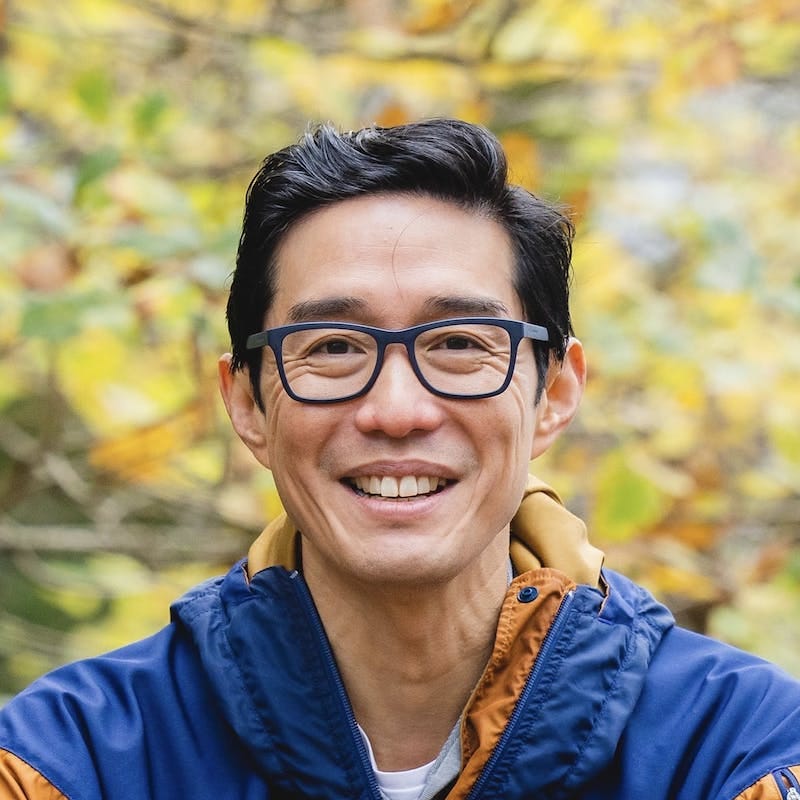The other night I went out and slurped a really good Singaporean Laksa. Noodles that were just squidgy enough, a broth that was light in texture, and infused with the magic ingredient—laksa leaves.
The restaurant was new, but this dish tasted properly authentic. I casually mentioned it to a Singaporean friend.
“Oh, if you want the best Laksa, you really should try the place along the seafront,” she said. “It’s the best.”
Growing up in a family from Singapore, I've had this conversation many times over.
Each time, I feel like I’ve accidentally entered a competition I didn’t sign up for …
… and lost.
It happens with food.
With where the best hidden gems in a city are.
With books on leadership.
With which university to choose.
These days, I no longer get so annoyed—but I smile and get curious.
Because this kind of moment of human connection reveals something subtle yet important:
When we gain expertise, knowledge is—counterintuitively—what matters least.
When expertise gets in the way
As a lawyer—or indeed in any profession—expertise is often seen as paramount.
And, of course, it is important; a lawyer who doesn't know their locked-box from their completion accounts mechanisms isn't going to have a waiting list of M&A clients.
But in relationships—and especially in leadership—expertise is often the last thing we should lead with.
It's something that's especially tricky as you cross the bridge from being an expert lawyer advising clients to evolving into a leader who guides a team.
For what truly matters is not how much you know—that's taken for granted—it's how your presence and energy holds the room.
It’s tempting to stick with the strategy that landed you your job: offering advice, fixing problems, quickly sharing your perspective.
You know what happens, don't you, when a client asks you a question. You have the urge to start answering your client's question before they've even finished asking!
But outside of the deal room, your smart, capable colleagues might feel the subtle frustration I felt whenever my Singaporean friends unknowingly entered me into their Laksa competitions.
Perhaps you’ve noticed your team doesn’t always open up.
Perhaps they nod politely, say “thanks,” but you sense the connection feels thin.
Perhaps you’re realising that leading isn’t about being the smartest person in the room.
The antidote to expertise
So what's the solution?
Listening.
When your colleague pauses and glances away, and you choose to stay silent rather than jump in with advice—that’s listening in action.
Christian van Nieuwerburgh and Robert Biswas-Diener describe it powerfully in their new book Radical Listening - The Art of True Connection.
One internal barrier they've identified to listening well is comparing—the internal shift where your mind jumps to:
“Oh yes, that happened to me too.”
We think we’re connecting, but we’ve stopped truly listening.
Listening beyond words
Listening is deeper than hearing words being spoken by someone. It's also more than "active listening," which often seems to be more about conveying the impression of listening than anything else.
Listening is about being curious.
It's about noticing what's said—and what's not said.
It's about paying attention to body language, the subtle shifts, the silences.
What I notice most when someone listens deeply is that a space emerges for thinking—and sensing.
It's a kind of listening space that makes teamship feel effortless because it allows interaction to turn from competition into connection and collaboration.
Ideas flow and shoulders relax.
Curiosity over credentials
The importance of listening over knowledge and expertise is something I notice especially when I have my coaching hat on.
My role isn’t to give my clients more knowledge, even though it's often ostensibly what they want: "I want to change careers. Tell me how you did that!"
My clients—like you—are smart. They already have plenty of knowledge—even in areas where they are not "an expert".
My role is to listen deeply and stay curious, enabling them to uncover new ways of integrating their existing knowledge.
Almost without exception, they discover the answer they need.
For all us experts out there, it's time to lead with curiosity, not credentials!
By leading with listening, not expertise, you'll find connections deepen and leadership becomes easier, more impactful—and yes, more effortless.
PS: If you’re a lawyer or high-performing professional learning to lead without stumbling over your expertise—let’s talk. I won’t give you more answers. I’ll listen. So you can hear what really matters. That’s where your effortless leadership begins.
👉 Over to you
Ready to practise some deeper listening yourself? Here are a few experiments you might try:
1. Catch yourself comparing. Notice the urge to say, “I've had something similar happen...” Instead, stay fully present in their story and ask what they might need from the conversation.
2. Ask before advising. A great New York Times article I read invites us, when listening to someone who’s upset or frustrated, to ask if they need to be "hugged, helped, or heard." Take off your expert hat, and avoid assuming you know the answer. Instead try asking: “What’s the real challenge here for you?” or simply, “How can I help?”
3. Listen for the unsaid. Pay attention to what isn’t explicitly stated. Perhaps it's acknowledgment, support, or simply space.
That’s it for this week!
As always, I appreciate your feedback on Effortless Thursdays.
If Effortless Thursdays resonated with you, I'd be grateful if you told just one friend to subscribe. They and you can always unsubscribe using the link below.
What did you think of this week’s edition? How can I make it more useful to you? Let me know in the comments, by email or on LinkedIn.
To your health, joy, and success—one step at a time!
Eric








I still remember the quality of the listening and curious questioning you extended to me almost 2 years ago. What you drew forth for me to see is still coming true because the size and clarity of the vision that was evoked.